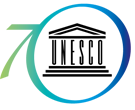Information Literacy

© Edgar Luy Pérez
The Alexandria Proclamation of 2005 describes information literacy and lifelong learning as the "beacons of the Information Society, illuminating the courses to development, prosperity and freedom. Information literacy empowers people in all walks of life to seek, evaluate, use and create information effectively to achieve their personal, social, occupational and educational goals. It is a basic human right in a digital world and promotes social inclusion in all nations."
Information literacy enables people to interpret and make informed judgments as users of information sources, as well as to become producers of information in their own right. Information literate people are able to access information about their health, their environment, their education and work, empowering them to make critical decisions about their lives, e.g. in taking more responsibility for their own health and education.
In a digital world, information literacy requires users to have the skills to use information and communication technologies and their applications to access and create information. For example, the ability to navigate in cyberspace and negotiate hypertext multimedia documents requires both the technical skills to use the Internet as well as the literacy skills to interpret the information.
Media and Information literacy
Empowerment of people through Media and Information Literacy (MIL) is an important prerequisite for fostering equitable access to information and knowledge and promoting free, independent and pluralistic media and information systems.
Media and Information Literacy recognizes the primary role of information and media in our everyday lives. It lies at the core of freedom of expression and information - since it empowers citizens to understand the functions of media and other information providers, to critically evaluate their content, and to make informed decisions as users and producer of information and media content.
News
-
17.11.15
-
06.11.15
Palestinian youth from Gaza and the west bank gain new media and information literacy skills
-
27.10.15
-
07.10.15
Strengthening Uzbek libraries through media and information literacy

